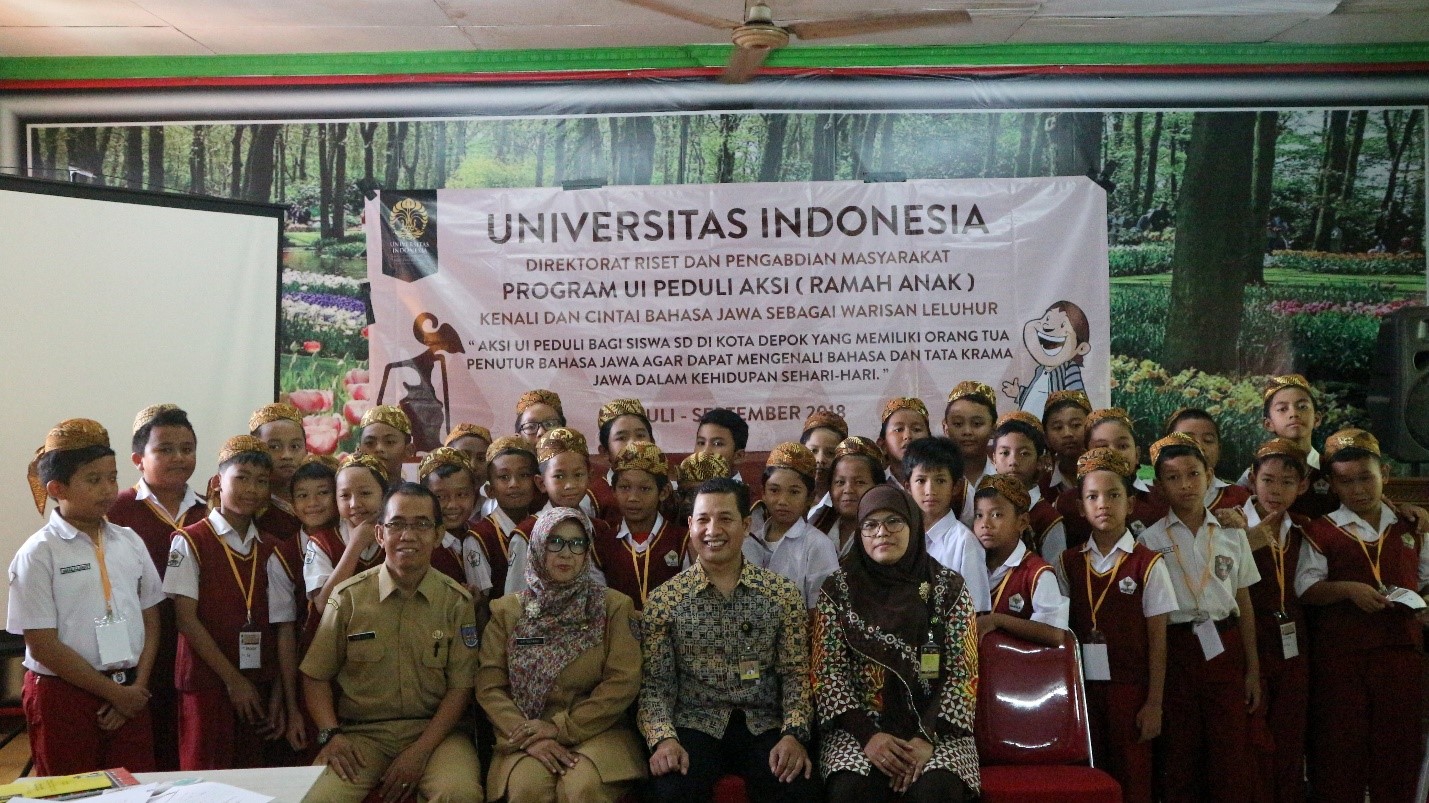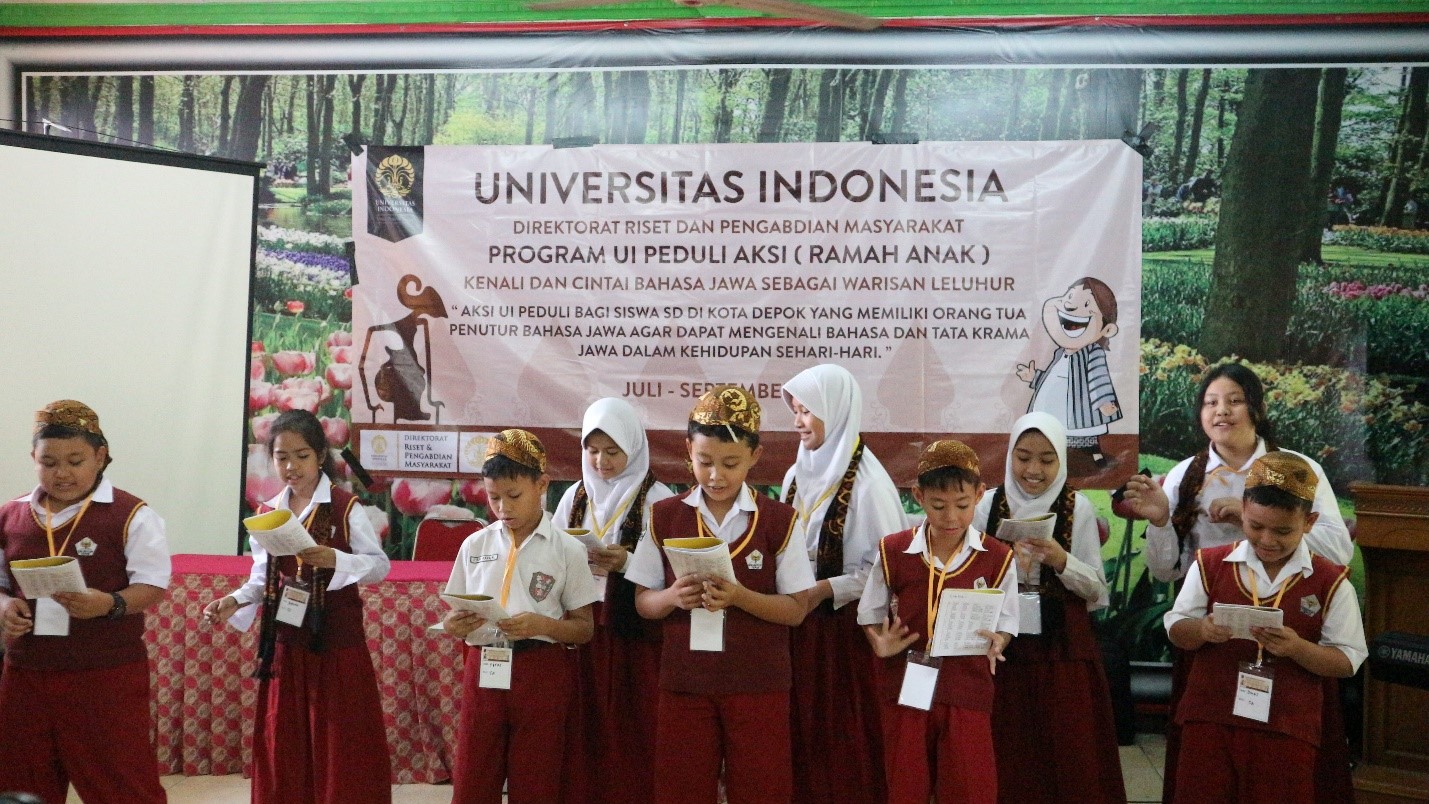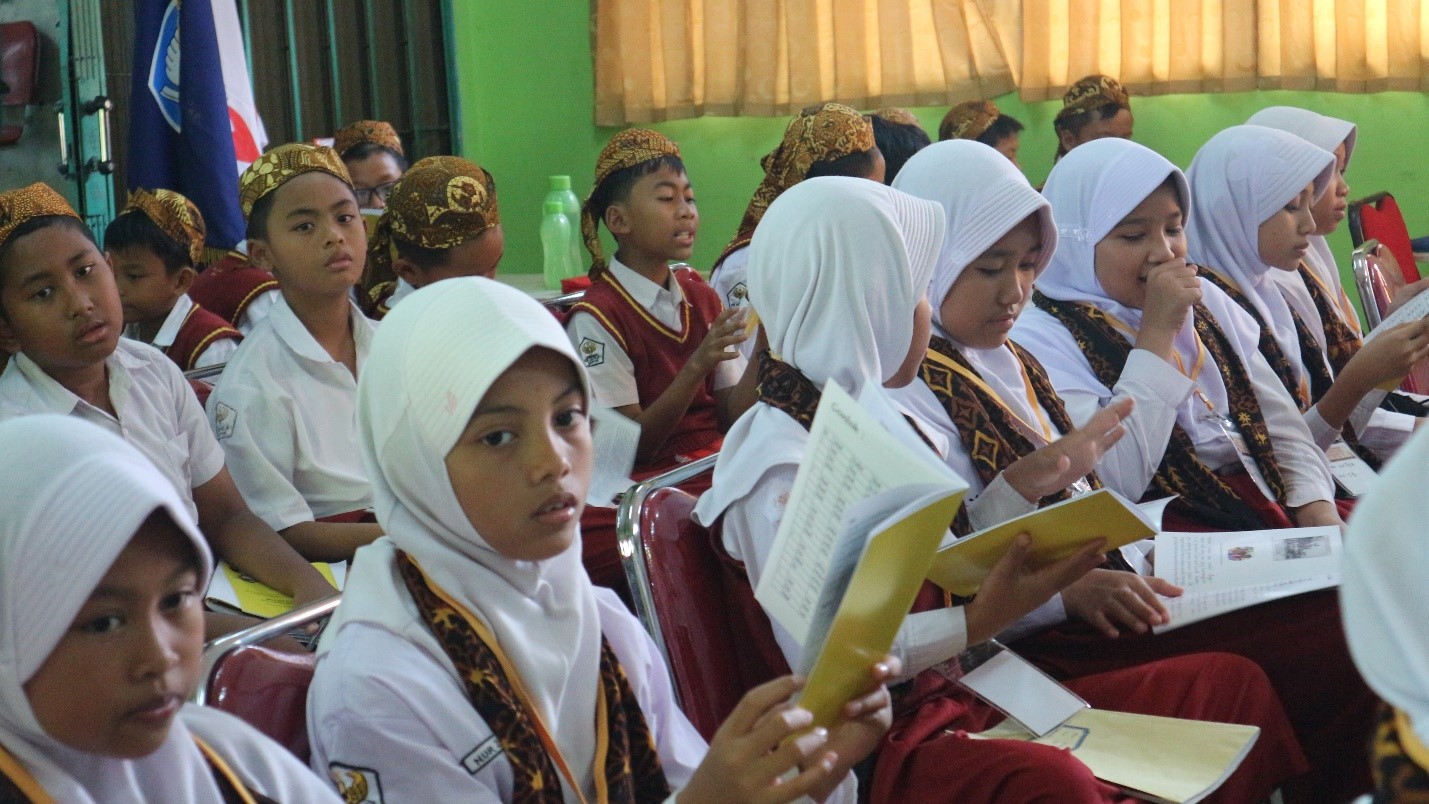DEPOK – Indonesia is known as a multicultural country with diverse languages reaching more than 700 regional languages. In fact, there are regional languages that are now extinct because they are no longer used to communicate between communities. There are also regional languages such as Javanese which are still used by more than 80 million people in Indonesia. However, the existence of the Javanese language was also quite interlaced mainly because the mobility of the people who moved the area made it difficult for children born to Javanese speakers to still understand and speak Javanese. As in the city of Depok, there are many Javanese-speaking migrants who come to the city.
That reason is the basis of the UI Community Service Program. This program is the UI Aksi Anak Care-Friendly Program with servants Priyanto and Dyah Safitri from the UI Vocational Education Program. “The purpose of community service is to stimulate children from parents of Javanese speakers to still be able to understand and be able to communicate using local languages. At a minimum in the family environment, “said Priyanto” The number of students with Javanese-speaking parents is quite large in Depok City on September 25, 2018. Children should understand and understand Javanese language and manners if the family has begun to be taught, “said Dyah Safitri.
This activity was carried out on Tuesday (09/25/2018) in Anyelir 1 Elementary School in Depok City involving 60 students born to parents of Javanese speakers. By introducing them to Javanese culture and language from elementary school, children will be able to interact easily when they grow up to have mobility to other cities in Java or outside Java. “The introduction of Javanese to children in a way that is fun through children’s songs and games can impress and inspire them to learn and understand Javanese,” said Sri Suparni, principal of Depok’s Anyelir 1 Elementary School when giving a speech.
This Community Service Program focuses on learning and understanding the Javanese language, giving the impression that Javanese is easy. The approach taken is knowing the principle of the Javanese language that has a language level from ngoko, kromo, to kromo inggil which must be used appropriately. Other knowledge of Javanese philosophy, wayang kulit, and other Javanese cultural results were also mentioned in this activity. Interestingly, the approach to children is more pronounced when introduced through motion and song. Esuk-esuk songs that describe how children are always ready to learn and go to school are included in the introduction to the Javanese language. Other activities include children being invited to play Cublak-cublang suweng dolanan while singing the Javanese philosophical meaning.
“Fun, we can play while learning Javanese. At home I will try to speak Javanese with my parents, “said Anindita Artanti Maheswari. He is one of the female participants from grade 5 of SD Anyelir 1 Depok who participated in this program. According to him, by being taught through play, it is easier to digest words in Javanese than to just hear from their parents’ chat at home.
The hope is that with this community service program, the preservation of regional languages, especially for the new generation of Javanese speakers, can be maintained. Even though they are not in the Javanese-speaking region, they can understand and communicate in Javanese. With regional languages that remain sustainable, Indonesian culture will continue to be rich.



